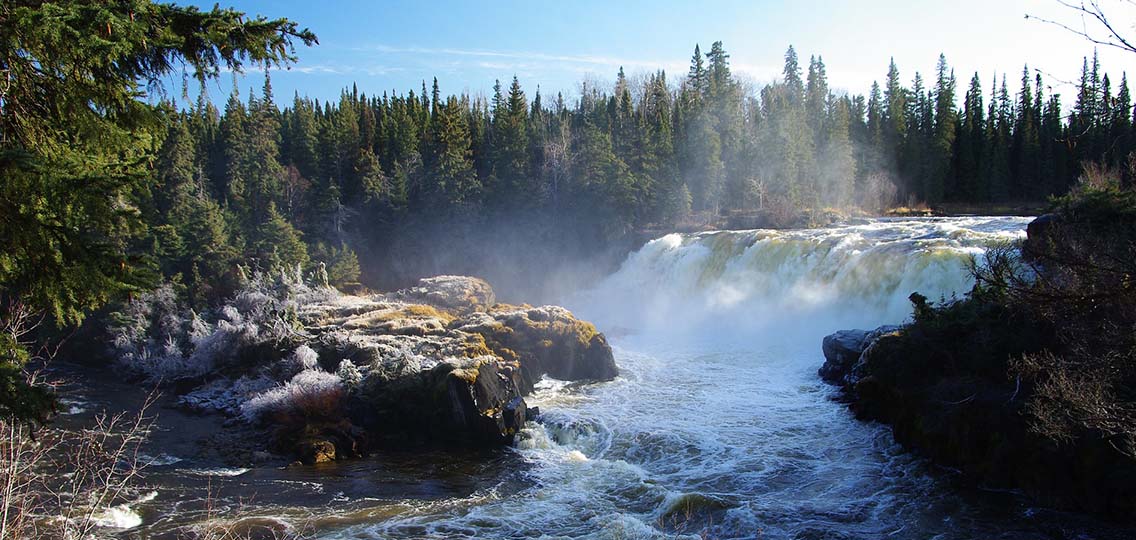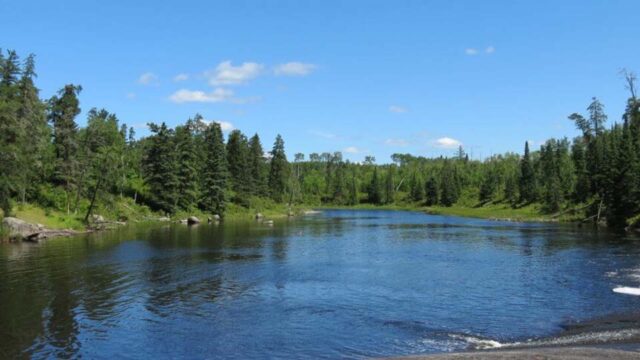Manitoba’s proposed Environmental Rights Act puts pressure on Ontario to improve its Environmental Bill of Rights
When Ontario’s Environmental Bill of Rights (EBR) came into effect in February of 1994, it was at the forefront of Canadian environmental law and policy. It was hailed by Ontario’s first Environmental Commissioner and others as “a significant break with the past”. For many, it represented a new era in environmental decision-making — one characterized by enhanced public participation, citizen empowerment, and greater accountability of decision-makers.
Today, however, Ontario’s EBR is showing its age.
Experience has shown that many of its provisions have not kept up with modern thinking about protection of the environment or public participation. Yet the Ontario Government has been unwilling to update it, despite calls for reform by the Environment Commissioner, by Ecojustice, and by the Canadian Environmental Law Association, among others. In 2011, at the request of CELA and Ecojustice, the Ministry of the Environment (now the Ministry of the Environment and Climate Change) agreed to conduct a review of the EBR. More than five years later, the Ministry has not yet even decided the scope of that review, much less started the public review process.
Earlier this month, Manitoba introduced the Environmental Rights Act (Bill 20). This development has raised hopes for a meaningful review of Ontario’s EBR and shines a light on the reforms that are needed — and are possible — in Ontario. If and when Manitoba’s Environmental Rights Act becomes law, it will set a bold example for environmental rights leadership at the federal level and in provinces that have yet to introduce such legislation.
The good
We’re especially pleased to see that Bill 20 enshrines provisions that Ontario’s Environmental Commissioner and environmental groups have been seeking for decades. Here are some highlights:
- The inclusion of a substantive right to a healthy environment
Bill 20 states “Every resident of Manitoba has the right to a healthy and ecologically balanced environment”. Ontario’s EBR contains no such right. The closest it comes to creating or acknowledging such a right is a mention of it in the preamble to the EBR. Preambles are helpful in interpreting statutes where there is ambiguity, but they don’t create rights themselves. - Affirmation of the government’s duty to protect the environment.
Bill 20 states unequivocally that the Manitoba Government has an obligation to protect the environmental rights of Manitobans. The only statement about the Ontario Government’s obligations in this regard is a statement in the preamble of the EBR that the government “has the primary responsibility” for achieving the goal of environmental protection, which appeared to be aimed at reducing public rights rather than imposing duties on the government. - The right to request an investigation
Any Manitoban may request a government department to investigate an alleged contravention of an Act or regulation that has caused harm to the environment. If the department refuses to investigate, the Environmental Commissioner may order it to conduct the investigation. Ontario’s EBR also contains a right to request investigation, but the Commissioner has no power to require the department to do so if it refuses.
- The right to take the government to court
Bill 20 gives any Manitoba resident the right to take the government to court for failure to enforce an Act or regulation, where the failure has resulted or will imminently result in significant harm to the environment. There is no similar right to go to court in Ontario’s EBR.
- The ability to bring a judicial review
“Privative clauses” in statutes prohibit the courts from reviewing the legality, fairness or reasonableness of government actions. Ontario’s EBR contains a privative clause preventing people from challenging the failure of the government to comply with the EBR except in certain narrow circumstances. Bill 20 contains no such privative clause.
- Recognition of the “special significance” of the environment to Indigenous peoples and their rights, including the right to be consulted
- Recognition of five important environmental law principles
Bill 20 explicitly recognizes the precautionary principle, the polluter pays principle, sustainable development, intergenerational equity and the principle of environmental justice — the just or equitable distribution of environmental benefits and burdens. Of these principles, Ontario mentions only the principle of intergenerational equity, and then only in the preamble of the EBR.
- Access to information
Bill 20 affirms the public’s right to access to environmental information, stating: “Every department must make environmental information accessible to the public in a reasonable, timely and affordable way”. Ontario’s EBR makes no mention of access to environmental information, and inability to access the information needed to effectively exercise the rights to participation in the EBR has been one of the most frequent criticisms of the EBR.
The ‘let’s wait-and-see’
This is not to say Manitoba’s proposed Environmental Rights Act is perfect, or that it improves on Ontario’s EBR in every respect. In a few areas, it is weaker than the EBR. For example, Ontario’s EBR removes the standing barrier that prevents most civil suits for public nuisance by anyone but the Attorney General of a province. Bill 20 has no similar provision.
In other areas, it is unclear what the rights of members of the public will be, since these rights are left to be determined through regulations rather than set out in the Act. For example, Ontario’s EBR contains detailed provisions for public comment on proposed “instruments” (permits, approvals, authorizations and orders) as well as a right to request the government to review existing instruments. All Bill 20 says about such participation is that “the Lieutenant Governor in Council may make regulations prescribing licences, permits and authorizations for which opportunities for public participation will be offered”.
Despite such limitations, the Manitoba’s Environmental Rights Act serves notice on other provincial governments as well as the federal government that public participation in environmental decision-making remains as important as ever. As the Manitoba Law Reform Commission has noted, public participation has many benefits, including:
- Enhancing the legitimacy of proposed projects;
- Ensuring consideration of a comprehensive range of factors in making decisions;
- Providing access to local and traditional knowledge;
- Ensuring projects meet the needs of the public;
- Broadening the range of solutions considered;
- Resulting in better decisions; and
- Reducing the level of controversy associated with a problem or issue.
What’s next?
The introduction of Manitoba’s Environmental Rights Act is bound to raise the question: “If Manitoba can do it, why not Ontario and other provinces?”
Why not, indeed. From an environmental law perspective, the recognition of the human right to a healthy environment in Canada is long overdue. More than 110 countries already recognize their citizens’ environmental rights, and their experience demonstrates that it can lead to healthier communities, healthier ecosystems and innovative, resilient economies.
It’s time for Canadian legislators to join the environmental rights movement sweeping the nation.
National polling indicates emphatic public support for environmental rights, as do the 124 and counting municipalities across Canada that have passed declarations supporting the right to a healthy environment. Momentum continues to grow, and in the coming months and years we hope to see other governments follow Manitoba’s lead and introduce and pass new environmental rights laws or strengthen their existing ones — culminating in the Charter recognition of every person in Canada’s right to a healthy environment, from coast to coast to coast.
Ecojustice and the David Suzuki Foundation are partners in the Blue Dot movement, a national grassroots campaign to advance the legal protection of all Canadians’ right to live in a healthy environment.




